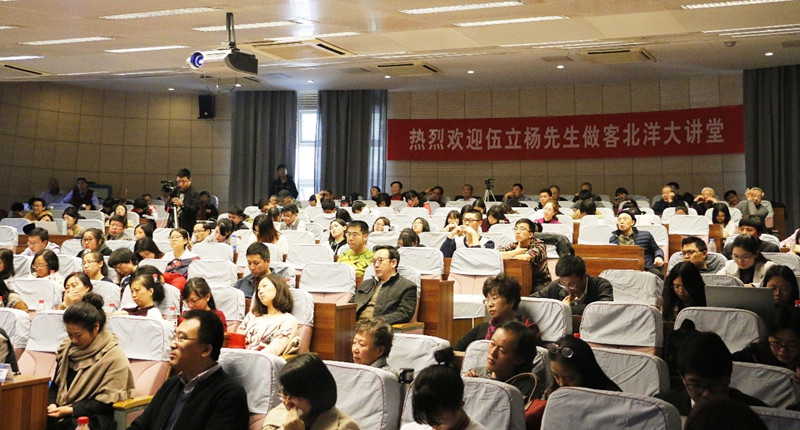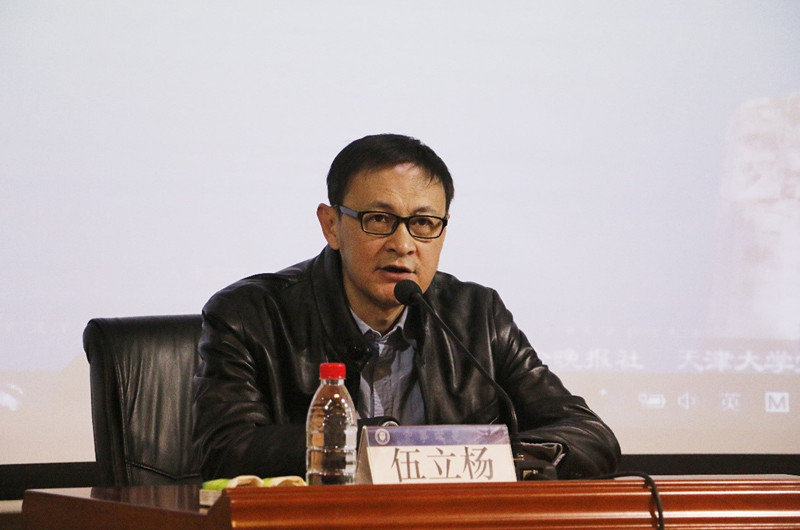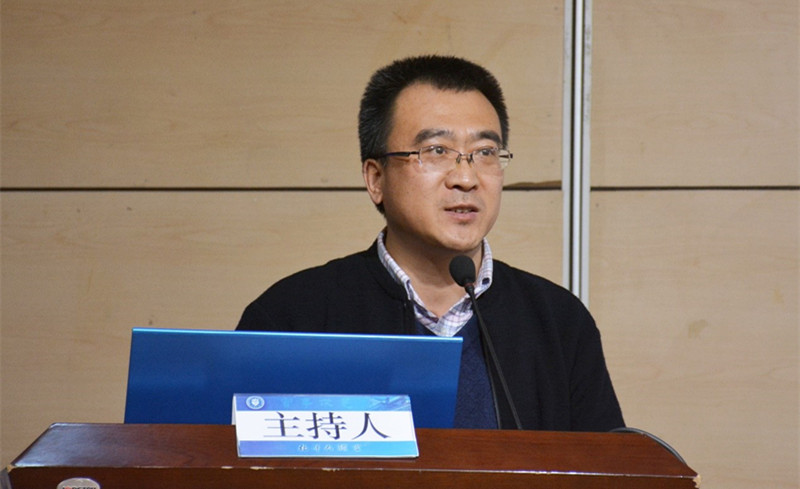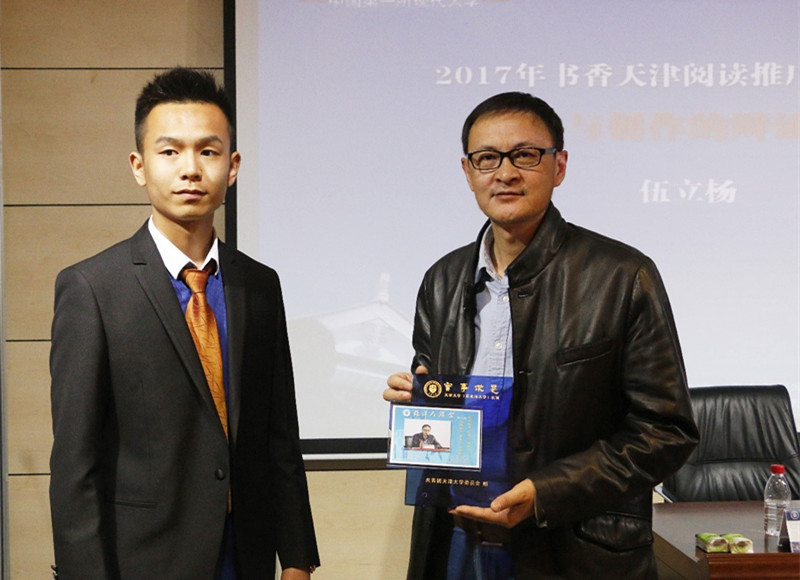Recently, Wu Liyang, Editor-in-chief of Contemporary Literary Criticism, was invited to Tianjin University to share his experience in reading and writing. The lecture, with the theme “A selection of dialectic relationships in reading and writing”, is one of a series of activities aiming to promote reading and writing among citizens in Tianjin and resonates with many readers. Mr. Wu is a member of the China Writers’ Association and has great interest in the history of the Republic of China. In the past, he has published more than 20 works and enjoys a good reputation in China. Attendees of the lecture include guests from JINWAN Media Group and Tianjin University students.

Mr. Wu began with the outline of his lecture. “Today, I’d like to share my reading and writing experience from the following five aspects: the choice of books, the impact of reading on cultivating people’s character, view reading and writing from the perspective of aesthetics, the judgment of historical materials and the relationship between reading and life”, he said. Through the ages, various books have helped shape the powerful current of human civilization. These days, more than 300 thousand books are published every year in China, which offers readers more choices. A famous writer named Jia Pingwa highlighted that it is extensive reading that forms people’s judgment but it is intensive reading that helps writing.

As for the influence of reading, Mr. Wu stated:” Reading plays an essential role both in practical use and in cultivating an individual’s mind and temperament.” Liu Bocheng, an eminent Chinese marshal, kept reading as his lifelong habit. As a result of his accumulation of knowledge, besides his contribution to the Chinese revolution, Liu also left several prominent military works, in which his military experience and thoughts were outlined. These works, as a valuable spiritual legacy, have greatly inspired younger generations. Likewise, Douglas MacArthur, Chief of Staff of the United States Army during the 1930s, also loved books and gained much from his reading.

From the perspective of aesthetics, in Mr. Wu’s opinion, to be a good writer, one has to be a stylist, who is an expert in using unique narrative ways, structures and writing skills to enrich his essays. Shen Congwen, who wrote Border Town and Feiming, the writer of The Story of the Bamboo Forest are the epitome of such writers. When it came to the importance of materials, Mr. Wu cited examples that some writers made mistakes in their works due to a lack of first-hand materials. In the last part, Mr. Wu mentioned: “Reading is not just a way of consuming time, but a method to allow our minds to reach places our footsteps can’t.” Even though reading and writing are such beautiful things in the world, some writers may receive negative messages from them. Under such conditions, Mr. Wu hopes that everyone can look on the bright side of life and enjoy the positivity of reading and writing.
After the lecture, Wang Zhenliang, director of the Supplement Department of Tonight News Paper, concluded the lecture with his feeling:” In fact, this is a topic that covers lots of aspects. But Mr. Wu explained the profound topic in such a simple way by using positive and negative examples, inspiring us to think more about reading, writing and academic research.”

In the end, the host excitedly declared that it was Mr. Wu’s birthday. Attendees cheered and congratulated Mr. Wu “Happy Birthday” in unison and applauded to express their thanks. Also, a student representative sent Mr. Wu a souvenir—a snapshot of Mr. Wu when he was giving the lecture with the photo frame of Tianjin University.
By: Zhao Han
Photo: the Propaganda Department of Youth Cultural Promoting Association
Editors: Qin Mian and Christopher Peter Clarke






